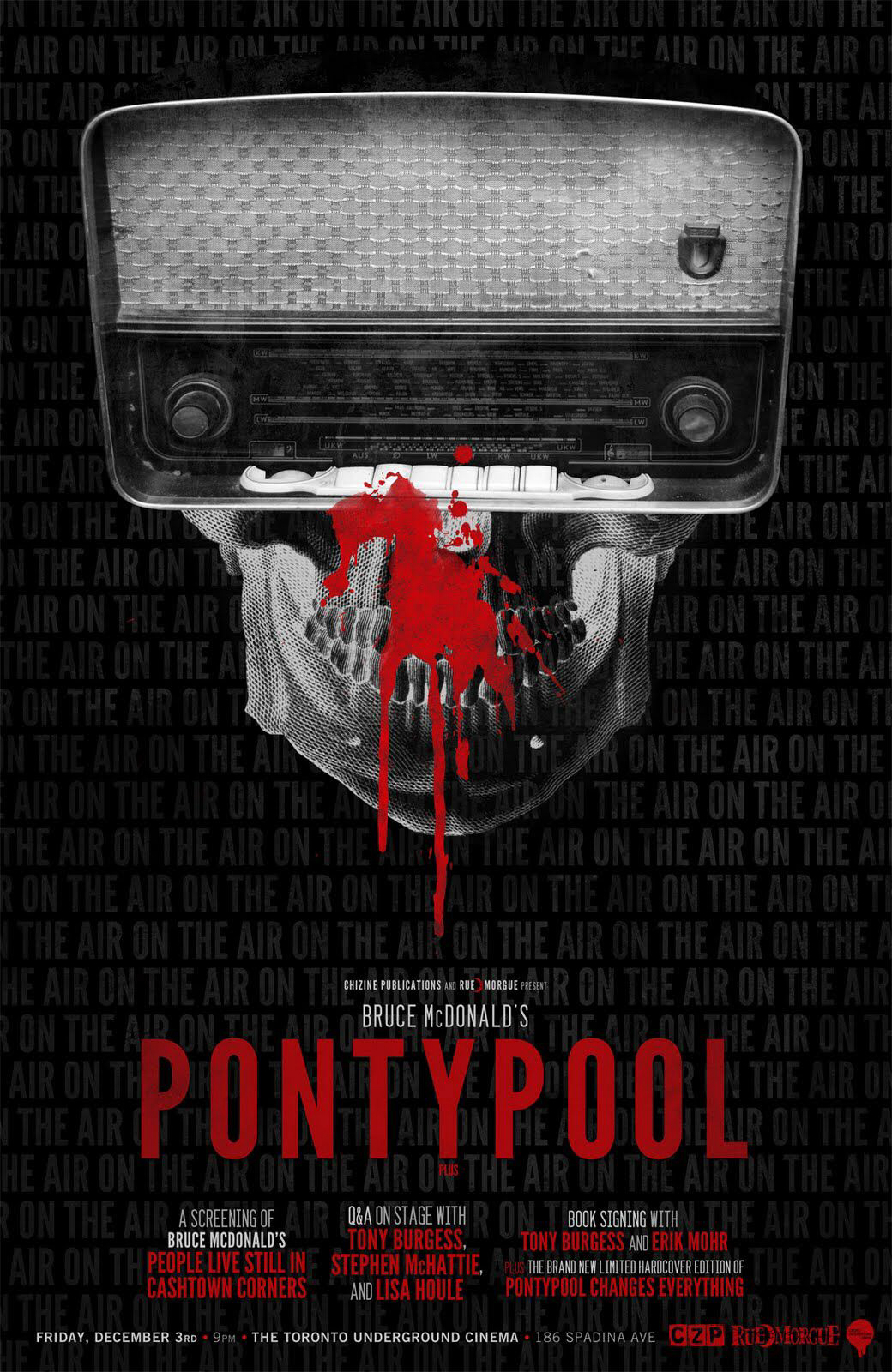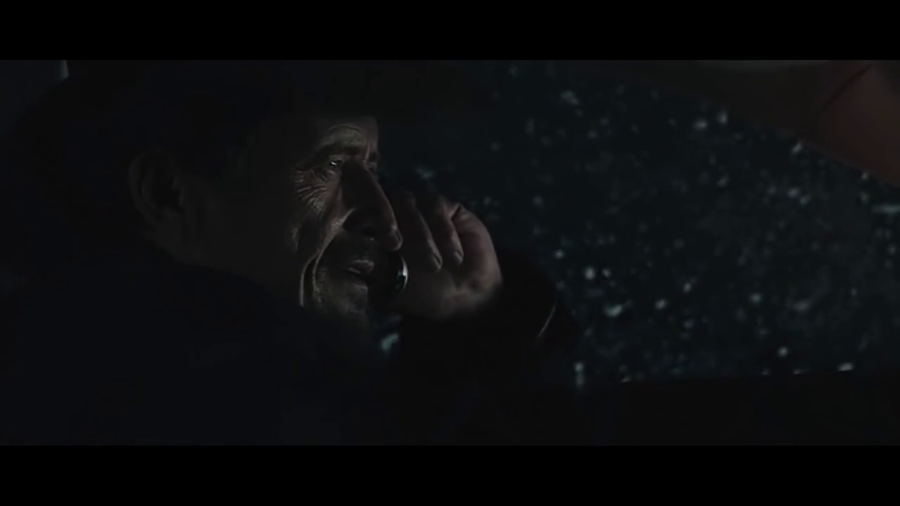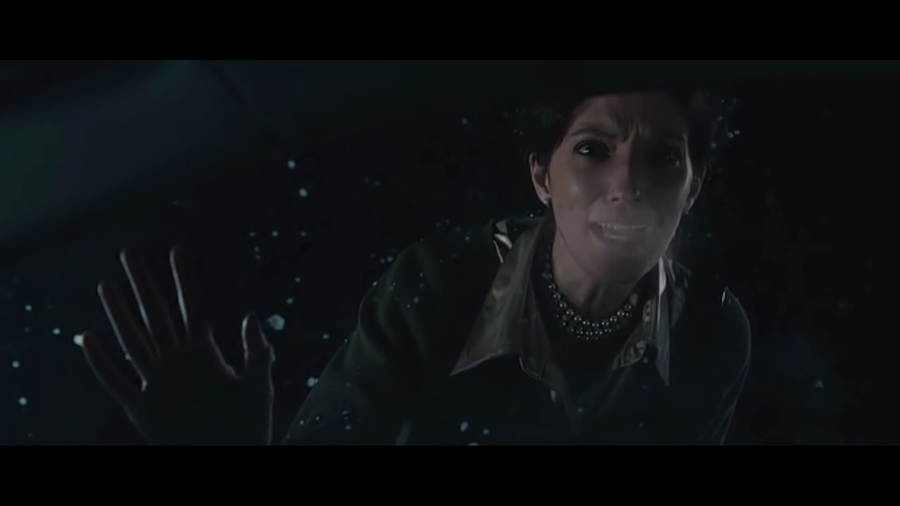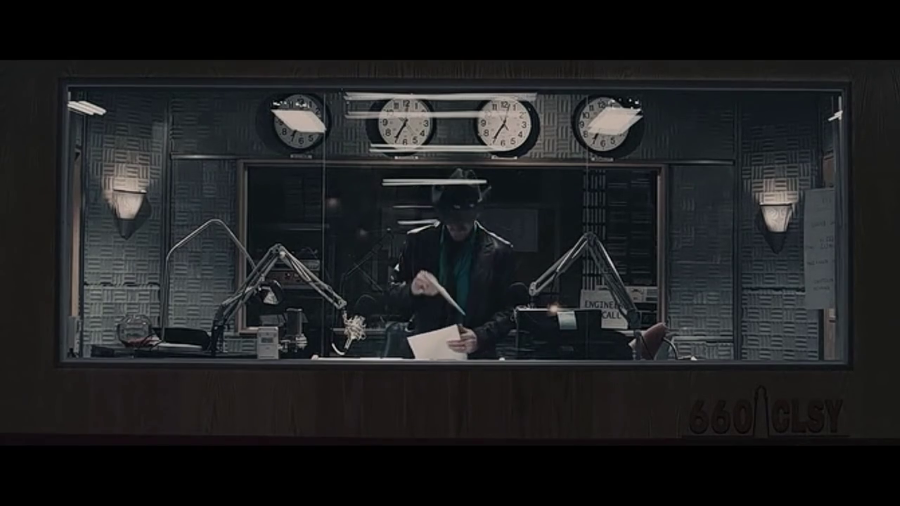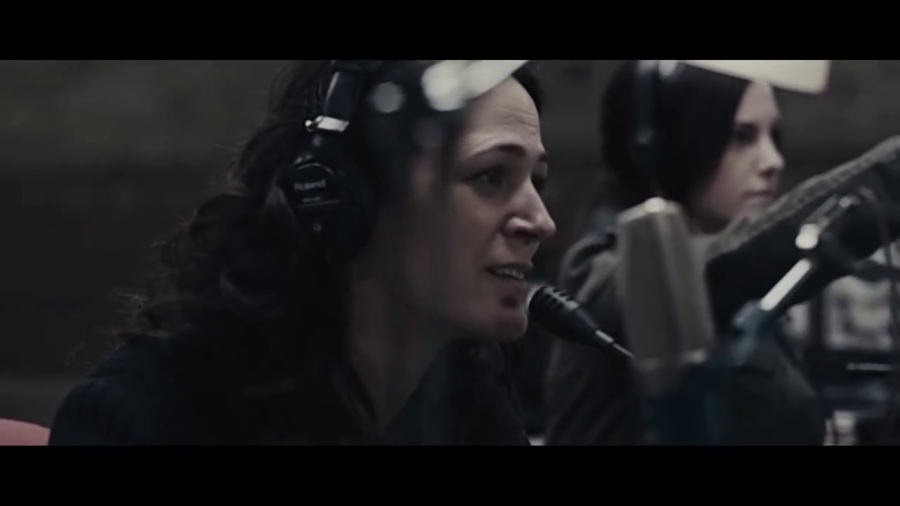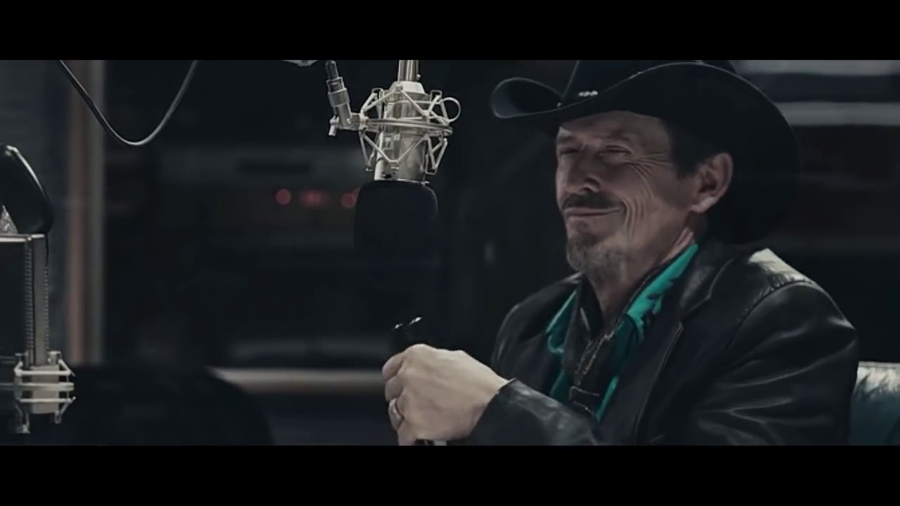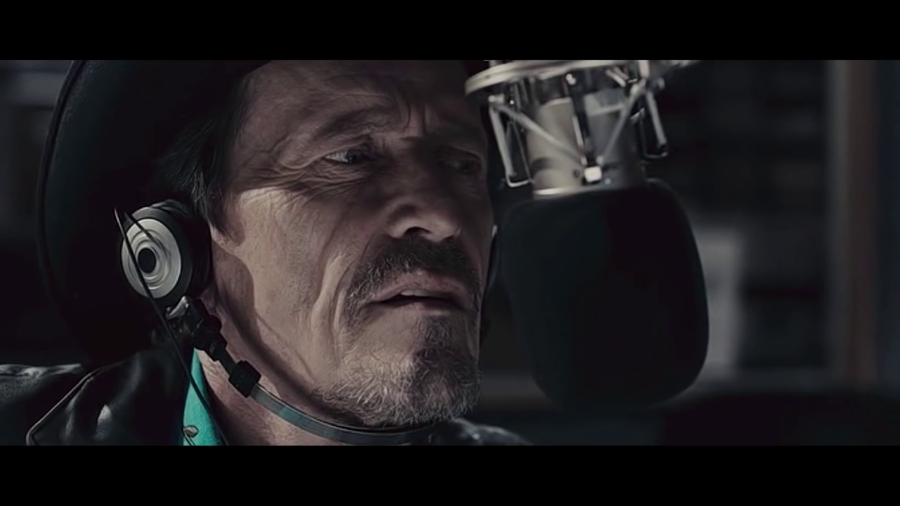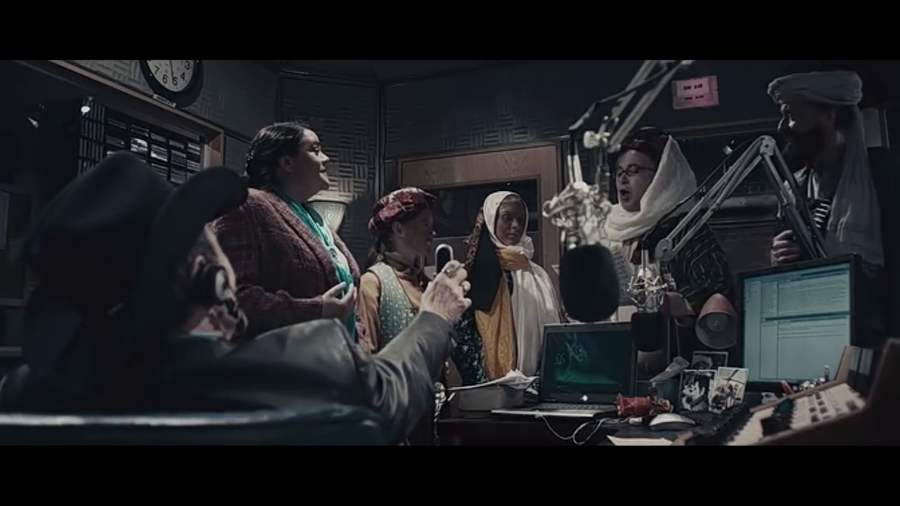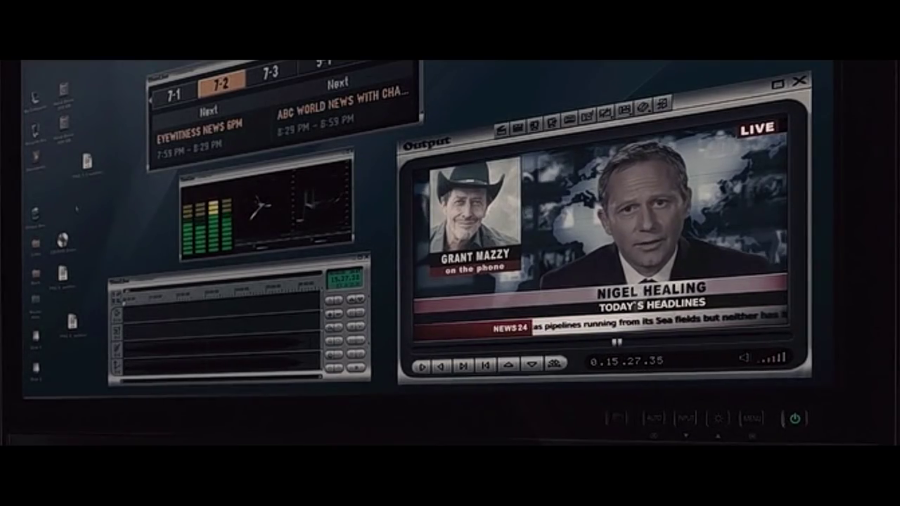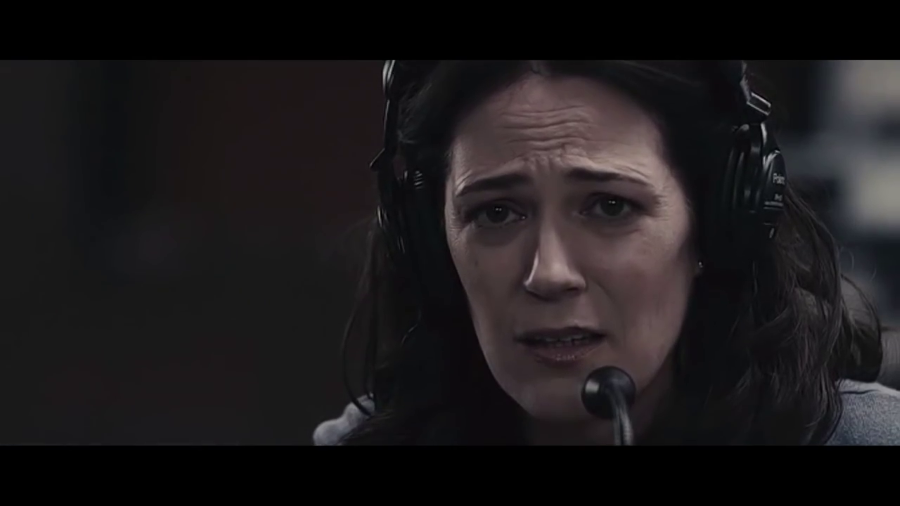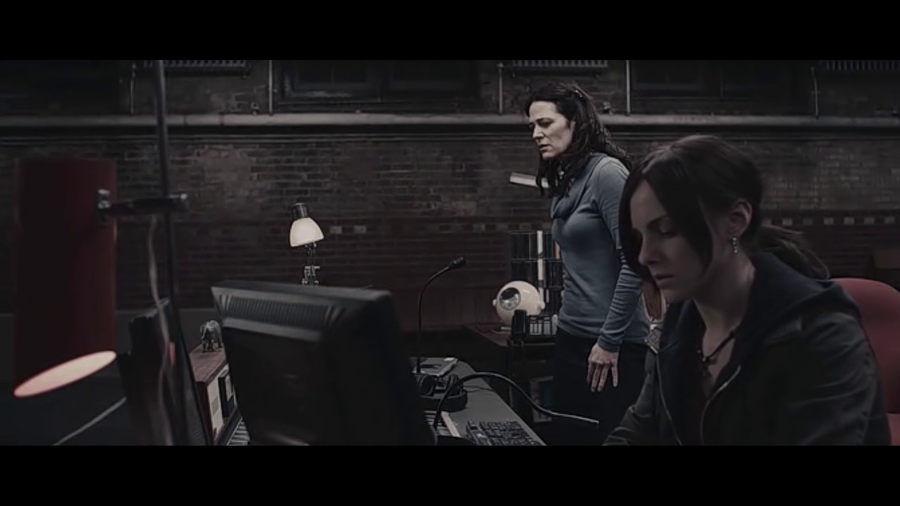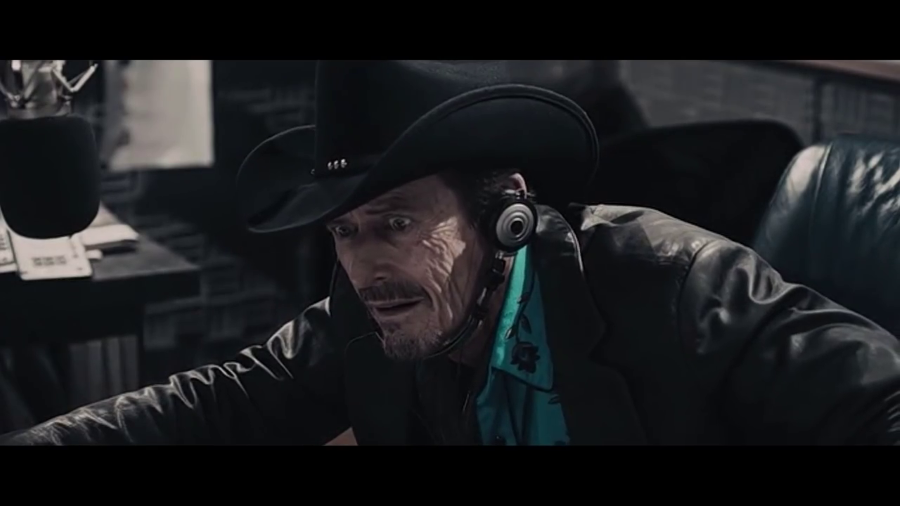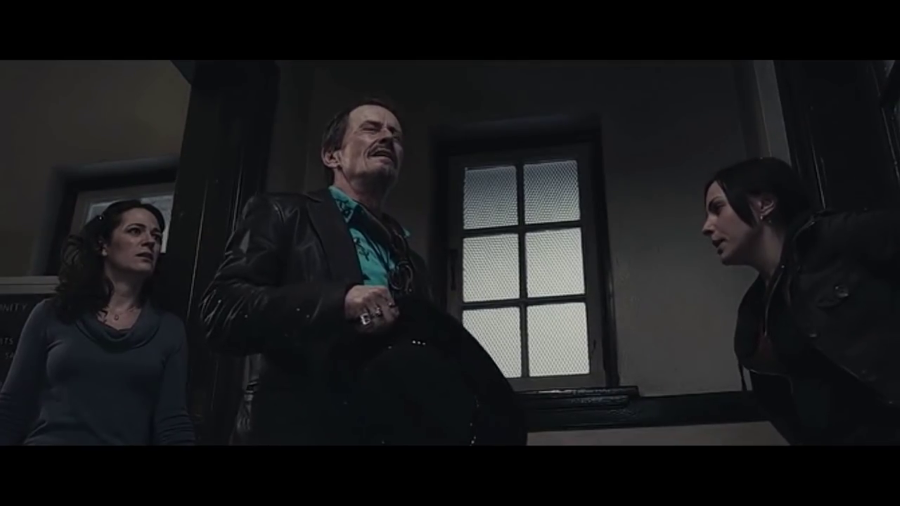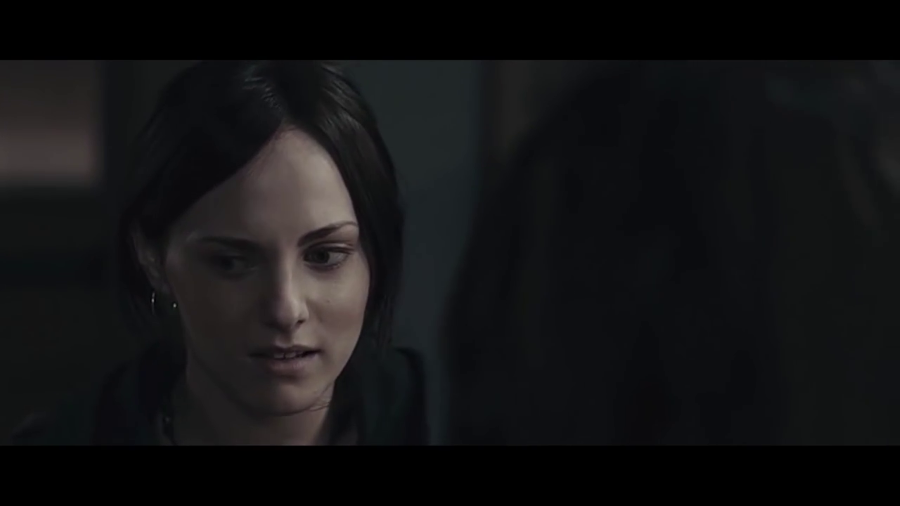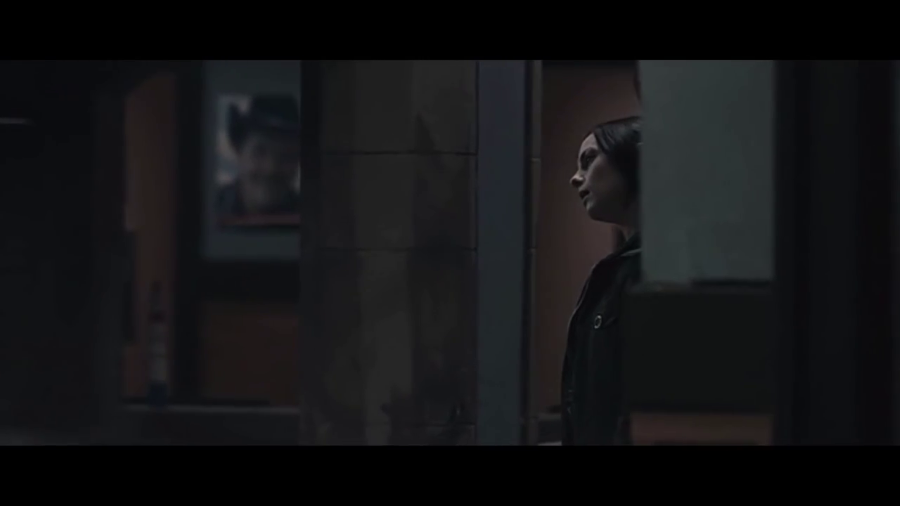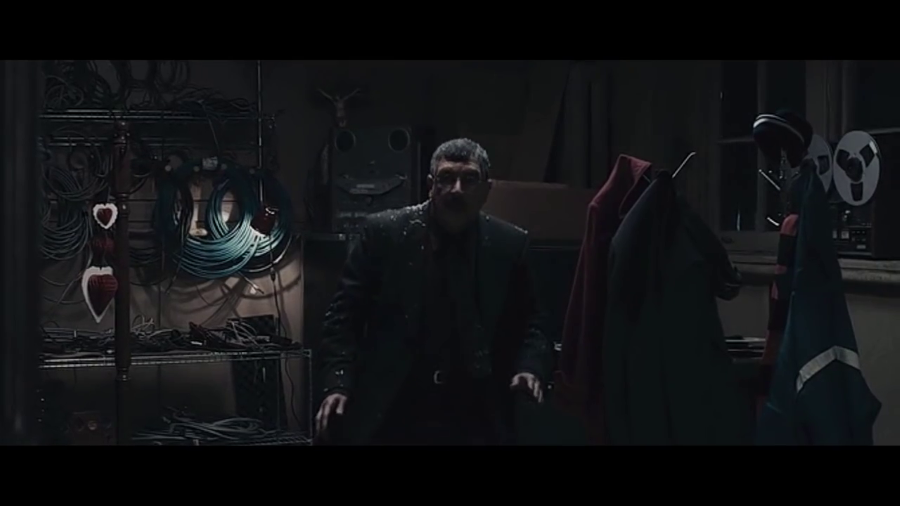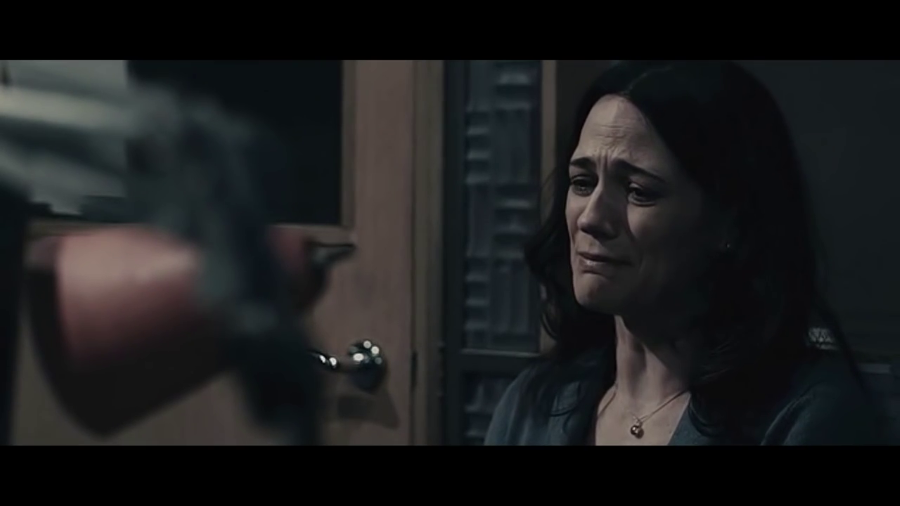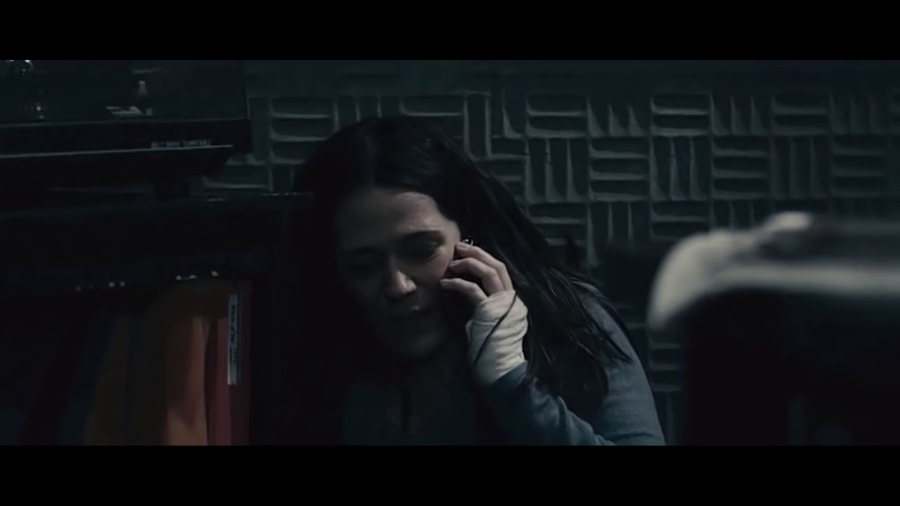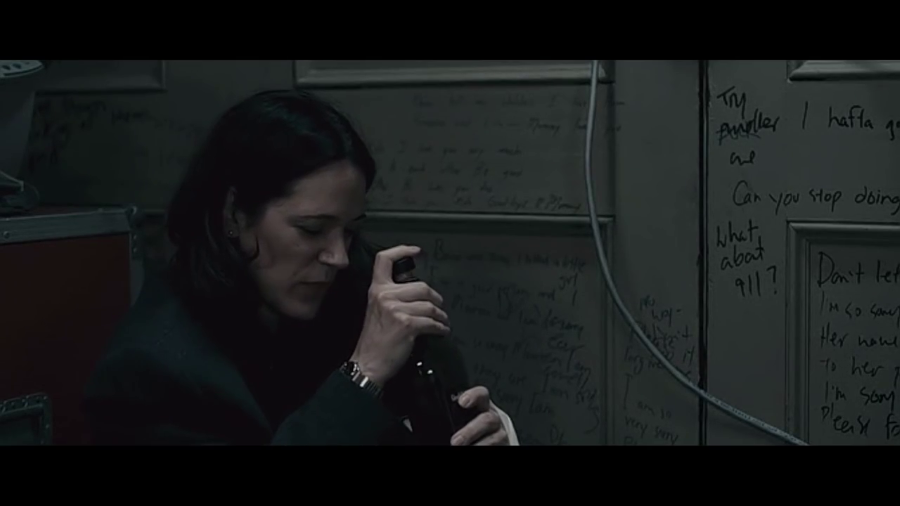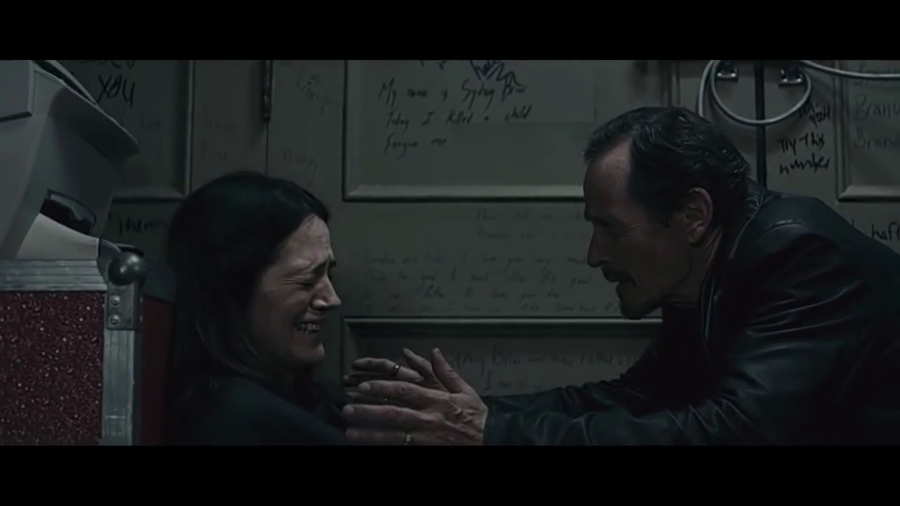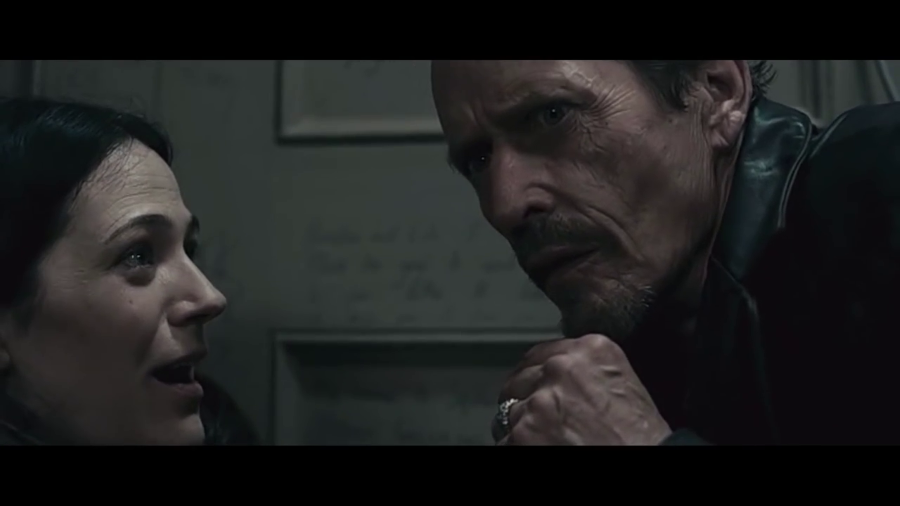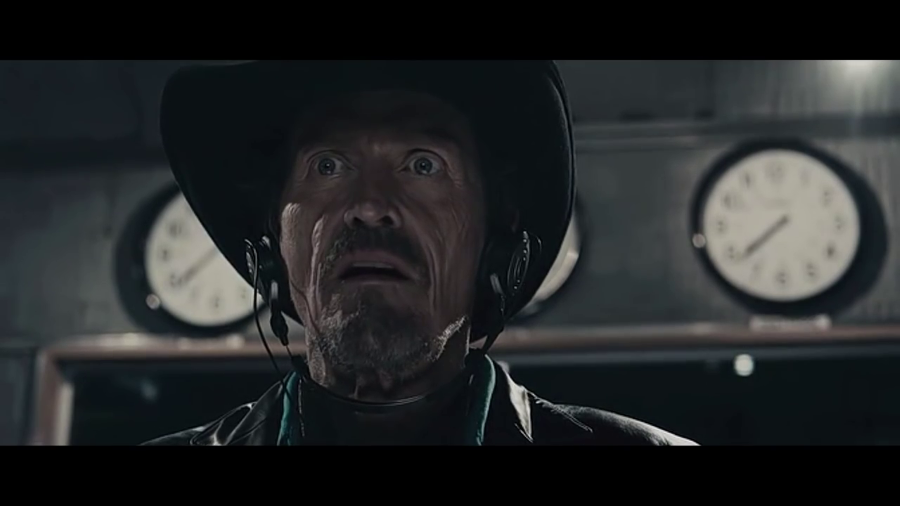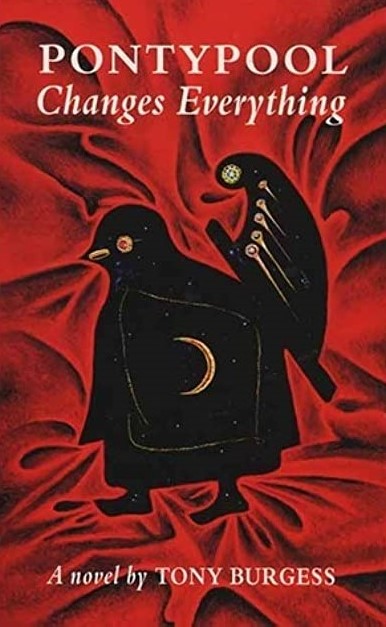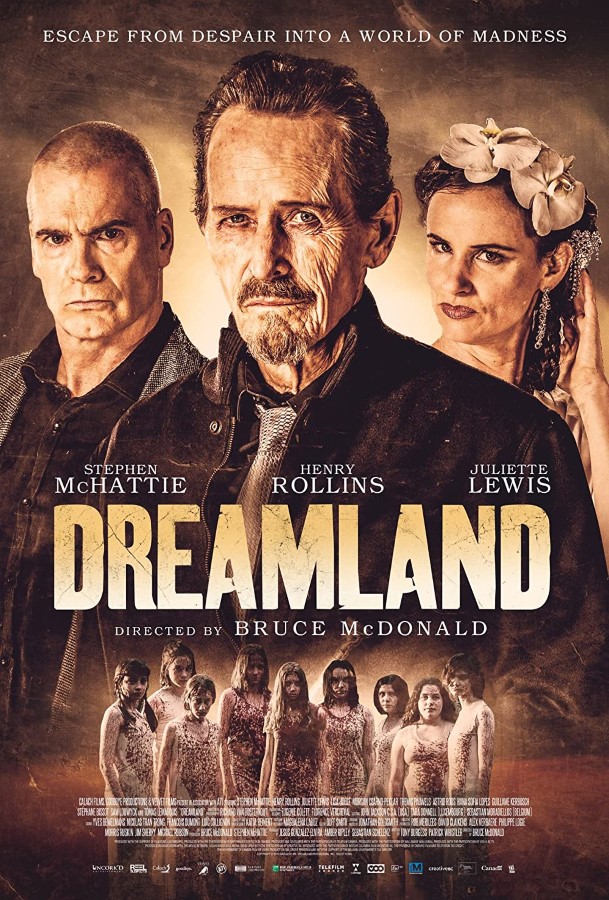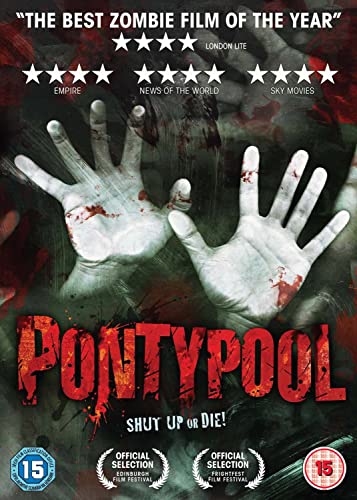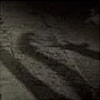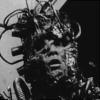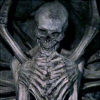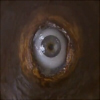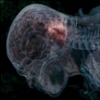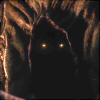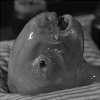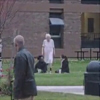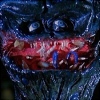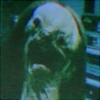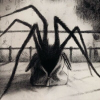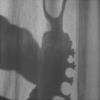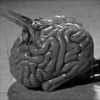By Jonathan Wojcik
ENTRY 29: PONTYPOOL
Everyone who goes in blind to this movie seems consistently glad that they did, and it isn't even because of any shocking plot twists or big reveals, because there really aren't any. It's the actual tense, atmospheric mystery of this film and character acting that's simply executed so well, it's that much fun to be as confused as its characters and unravel what's happening right alongside them. And if you simply can't watch horror movies or you truly cannot find this one to stream, GOOD NEWS! ...Pontypool also comes in the form of an audio drama, which you can listen to in the above youtube upload or even here on archive.org, where it remains legally free for the simple fact that it was broadcast on BBC radio. It includes its own alternate ending, but otherwise uses much of the same audio as the film itself, because almost the entire movie takes place entirely inside of a single, small radio station, the majority of its events heard rather than seen.
If you insist on reading my summary and review first, I'll still provide a few SPOILER WARNINGS, giving you a couple final chances to enjoy at least the audio version first.
That said, even the full movie begins with only a radio transmission. It's a little quiet, but I'll share the clip separately here, and I'll provide a transcript:
Direct Video Link
"Mrs. French's cat is missing. The signs are posted all over town. 'Have you seen Honey?' We've all seen the posters, but nobody has seen Honey the cat. Nobody. Until last Thursday morning, when Miss Colette Piscine swerved her car to miss Honey the cat as she drove across a bridge. Well this bridge, now slightly damaged, is a bit of a local treasure and even has its own fancy name; Pont de Flaque. Now Collette, that sounds like Culotte. That's Panty in French. And Piscine means Pool. Panty pool. Flaque also means pool in French, so Colete Piscine, in French Panty Pool, drives over the Pont de Flaque, the Pont de Pool if you will, to avoid hitting Mrs. French's cat that has been missing in Pontypool. Pontypool. Pontypool. Panty pool. Pont de Flaque. What does it mean? Well, Norman Mailer, he had an interesting theory that he used to explain the strange coincidences in the aftermath of the JFK assasination. In the wake of huge events, after them and before them, physical details they spasm for a moment; they sort of unlock and when they come back into focus they suddenly coincide in a weird way. Street names and birthdates and middle names, all kind of superfluous things appear related to eachother. It's a ripple effect. So, what does it mean? Well... it means something's going to happen. Something big. But then, something's always about to happen."
Perplexed and annoyed by what he assumes is someone messing with him, maybe a little high or inebriated, Grant finally heads into his place of work.
It's not the kind of town with the budget to hire a big-name radio host, but of course, Grant is no longer a big name. The job is now the best he can get, and they're excited to have none other than THE Grant Mazzy reporting their news with his infamous brand of deadpan snark, but to him, it's an embarrassment.
We also "meet" one more employee, but not in person; Ken Loney (Rick Roberts) is the Beacon's weather and traffic guy, whose voice we hear reporting in from his famous "Sunshine Chopper."
Grant turns his encounter with the weird, babbling woman into his first topic of the day, asking listeners to call and weigh in on what they would have done in the confusing situation. He goes on to have some banter with his co-hosts before reporting on the "big, cold, dull, dark, white, empty, never-ending, blow-my-brains out, seasonal-affective-disorder-freaking-kill-me" weather before cracking a joke that maybe global warming will clear it up early.
He shares a few local news reports, none of them terribly serious, but tries (a bit too hard) to spin them into something more controversial and exciting before Sydney has to cut his feed, returning to Ken in the Sunshine Chopper, while she takes Grant aside and reminds him he was hired more to report on school closures than on national controversies, bruising his ego.
In case the reality of his new job hadn't sunken in yet, she admits to him that there actually isn't even a real Sunshine Chopper. Ken Loney simply parks his truck up on a hill while they play some stock helicopter sounds, and the whole town adores their belief that he's looking down from their very own Sunshine Chopper.
Amused and incredulous but at least a little humbled, Grant does his job as requested for the rest of the morning...until a new police report comes in about some sort of "unruly crowd," a riot forming around the offices of a local doctor.
His feed then cuts off.
This is obviously something BIG, but Grant is forced to continue with his scheduled small-town material while they wait for more updates. Material such as a painfully awkward performance of "Lawrence of Arabia" by a local Church group, who send in a couple of youth pastors and children - in brownface - to sing the song live before a positively bewildered Grant. If the ice fishing fiasco and the fake Sunshine Chopper didn't do it, the racist and off-key sing-along might be the final nail in Grant's ability to take Pontypool seriously, especially that its station would still cut to something so insipid under such dire circumstances. As Sydney puts it, however, they have nothing else lined up, and the last thing she wants is to spread even more fear before they have any more details.
"I can't remember how it ends. I can't remember how it ends. It just keeps starting over and over. And over and over. And it's not called the Lawrence and the Table, is it. Not anymore. No. Prah? Prah? Prah. Prah" she continues, prah, prah, prah, as if stuck on the beginning of another word, and she looks visibly terrified until she's finally pulled away.
SPOILER WARNING ONE: WEIRDNESS ABOUT TO ESCALATE
Another witness reports that they were driving through the snow when they ran into another roving crowd, who began to imitate the sound of the car's windshield wipers.
More reports come in of roadblocks and military activity, and they receive a call from none other than the BBC. As disturbing as everything has become, you can see the thrill in Mazzy's face as he realizes he's a key player in what is fast becoming a world-wide news event. The BBC's Nigel Healing wants to know if there are any connections to rumors of terrorism...but for once, Grant holds back, admitting that nothing has yet been confirmed.
It's a little moment that I think truly cements Grant's character; he lives for attention and craves drama, but when people are really scared and really dying, he sobers up fast and gives people their dignity. He is not another Limbaugh.
Ken Loney finally reconnects with the station, but he's no longer even in his truck. Speaking as quietly as he can, he says he's hidden himself in an abandoned grain silo, having been chased there by a crowd of people.
Some of them are naked, some of them are running on all fours, all of them are repeating themselves loudly and often in unison, but all with looks of profound fear and confusion on their own faces.
SPOILER WARNING TWO: ONE OF THE MOST CHILLING MOMENTS IN PONTYPOOL.
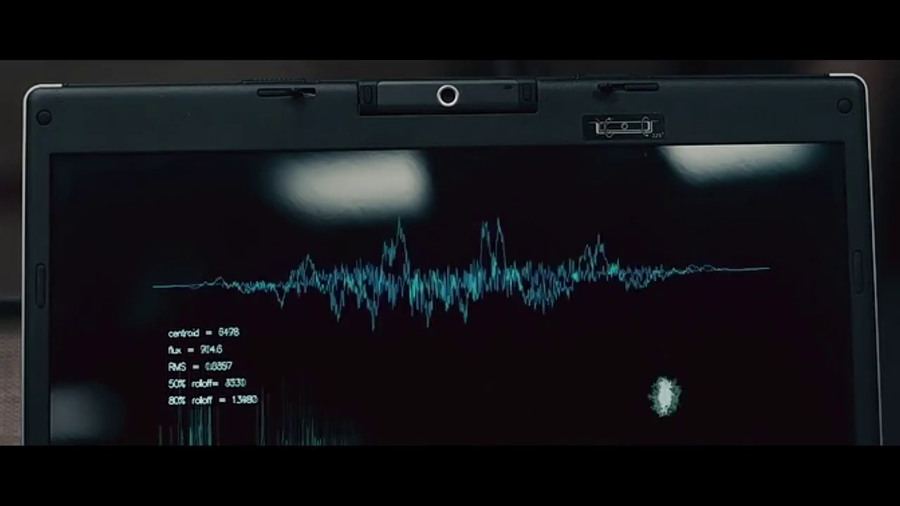
From his hiding place, Ken frantically reports that he can see one of these deranged crowds surrounding a van with an unidentified driver and passenger. The "rioters" use their mouths to drag these people out of their seats and into the snow, and are likened to a school of piranhas as they swarm the two captives...but though they rip into flesh with their hands and teeth, they don't seem to be driven by hunger.
Ken isn't sure how to describe what they're doing, except that they appear "desperate to claw or eat their way inside;" frantically attempting to bury their arms, legs or heads into the increasingly mutilated bodies.
Ken hides as someone breaks into the Silo, a teenage boy he recognizes but whose hands seem to be missing. At this tense moment, the radio signal is suddenly interrupted by an emergency message in French. No one present at 660 speaks it, but Laurel quickly translates it online and sends the text over to Grant:
"For your safety. Please avoid contact with close family members, and restrain from the following: all terms of endearment and rhetorical discourse. For greater safety please avoid the English language.
Please do not translate this message."
They probably should have said that last part first, but while everyone's still puzzling over the alert, Sydney receives word that the entire town is now under quarantine and must remain indoors.
A bewildered, haunted Grant ends the transmission with "That was our own Ken Loney, interviewing...a screaming baby. Coming from Mary Gault's eldest son's last dying gasps."
BUT WAIT!...Sydney receives another call!
...She lets grant know that Honey the cat has been found!!!
The man has snapped, and he's pretty sure everyone else already has. Sydney, of course, is just clinging to any normalcy she can get, and feels that anyone listening could use that relief themselves. No one seems to care that Sydney has said "Honey the missing cat!" a couple more times than necessary.
Sydney loses her temper, yelling "don't you walk out on me, Grant!" as he opens the door to the blizzard, and appears to find nothing amiss...until he must dive back inside and slam it behind him, narrowly locking out the swarm of people who begin beating on the outside walls, and all suddenly yelling, "don't you walk out on me, grant."
Sydney begins to have a nervous breakdown, and Grant feels like a real asshole, though we can't exactly blame him for having a bit of a dissociative episode there. He helps ground Sydney by asking what's next on their broadcast schedule...but it's the obituaries. They still find it worth doing, even though only a fraction of the day's deaths were even identified before utter pandemonium broke out, and that fraction is still quite a bit. It's one of the grimmest and most dramatic moments in the film as Grant begins to read the list of names killed by neighbors, friends and family over a stark black and white montage of the victims. Not in photos, and not their corpses; we see them standing in front of their homes, calm or smiling, as they were before, and that is so much more haunting than any gory remains.
Laurel gets up suddenly and walks off as the tea kettle starts to whistle...
Just then, Sydney also discovers someone entering the station through a window, but thankfully not one of the infected.
He's also a great character, that classic horror-movie academic whose fear is almost invisible under the thick layer of his scientific curiosity, and offers fascinating exposition for the remainder of his presence, which reminds me:
SPOILER WARNING THREE: WE'RE ABOUT TO GET A LOT OF (STILL VERY WEIRD) ANSWERS.
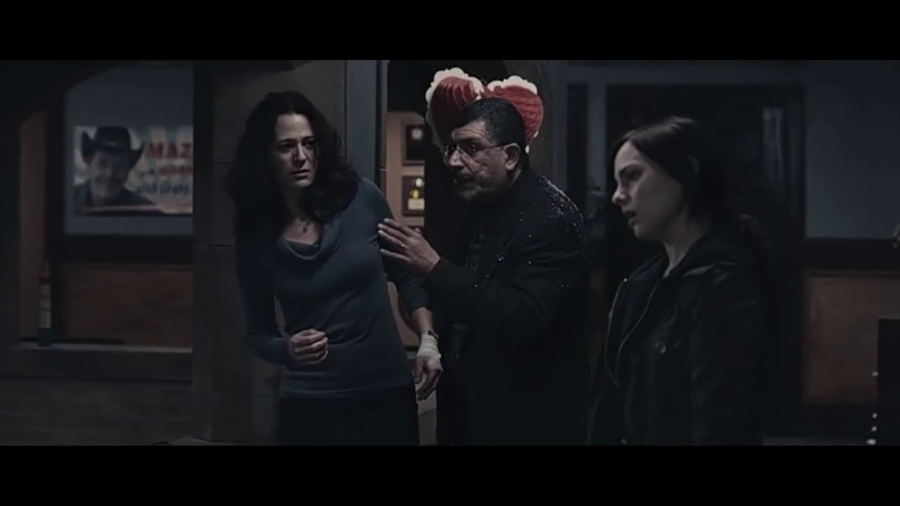
John stops Sydney from touching Laurel or even from speaking too much in her presence, and suggests they quickly retreat to the sound-proof booth. Laurel snaps out of her tea-kettle stupor only to start babbling about how "Mr Mendez is Missing Mazzy" again, which devolves into "No, I'm, I'M Missing Mazzy," eyes widening in shock as though struggling with some terrible revelation. Mendez, cryptically, tells Sydney not to worry because Laurel "hasn't found a purpose yet."
As Syd and the doctor join Grant behind soundproof glass, Sydney enters the control room with a big smile, as though she figured out whatever she was getting at. "No guys, wait! I'm not missing anymore! I might miss mister mazzy! I don't miss mister mazzy! I'm not missing anymore!" ...Mendez tells the others that their friend is very sick, and "doesn't know it yet," but she's "hunting them."
Even though they can all see one another, he also insists the girl will lose track of them as long as she can't hear their voices. Sure enough, she gives up and walks away...at least at first.
This is when Ken happens to calls back, still alive, but he can hear crowds passing by as he continues to remain hidden. He says he could hear a pack of victims chanting "look out for U-boats!" and calls the repetition "a symbol of the disorder." Mendez asks if he means "symptom," and Ken tries to say, yes, he meant "symbol!"...wait.
Grant and Sydney are already getting the idea by now, especially as Ken laughs at the fact that, even in his current situation, he can't stop thinking..."Do you have a sample?" A sample of what, asks Grant. "Just...a sample. I think a simple kind of sample." Ken starts to panic, since he's been watching this happening for a while now. He tries to tell them he just needs a Sample of what he's Saying, that's all, just a Sample.
Mendez suggests Grant ask Ken only simple questions, but Ken overhears, and is soon only babbling simple, simple, simple.
Laurel by now has hurled herself against the glass enough to be smeared with blood and missing a few teeth, but she has suddenly stopped. She's staring in through the window only moving her lips, and Grant wonders if she can read lips. Doctor Mendez is fascinated by this suggestion, and begins a sort of impromptu lecture on what he's deduced or at least hypothesized from his observations.
FINAL SPOILER WARNING: THE FULL DISCLOSURE.
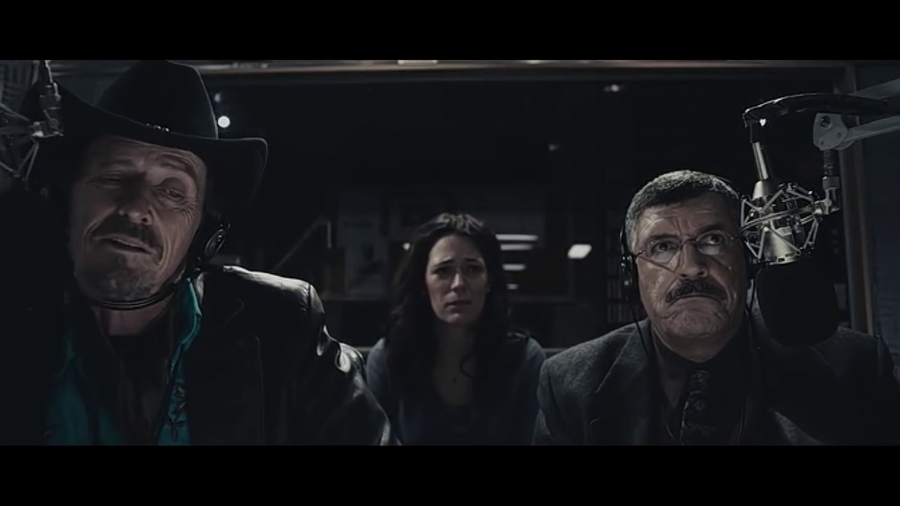
The phenomenon is viral, but it isn't physically viral; it's a "virus of words." Select words are "contaminated" by what he calls a "god-bug," an emergence of a "new arrangement for life" that may have begun purely as a mental perception, until it found its way into words to escape the confines of the mind. "A monster, bouncing around our language."
He reaches an epiphany, based on everything that's happened thus far, that it isn't even sound in itself that transmits the "bug," but simply the process of understanding an infected word. To process that word's meaning is to process the infection. He doesn't put it in these terms, but what he's basically suggesting is similar to accidentally downloading malware.
Grant is the first to ask...should they still be talking?
We get some fearful yet very funny banter, a little time skip that tells us the station has been airing Grant breathing for some undisclosed amount of time, and they finally decide to cut to elevator music.
Laurel, meanwhile, has returned to slamming against the glass, growing bloodier and sicklier and visibly more frantic to break in. But soon, she begins to convulse and spews up an ENORMOUS amount of blood before she collapses dead. The hilarious Mendez is positively elated to observe the final stage, with his condolences of course, but now several more of the infected have found their way inside.
The doctor is relieved that they can "breathe again," but then he keeps saying...breathe. Breathe. He rapidly begins to babble various English words before a petrified Grant and Syd, then begins to babble in his first language, Armenian. We all think we know what's just happened to him...until his "EUREKA!" moment. He had, in fact, felt himself succumbing until he switched languages, now certain that only English is infected.
Now speaking to one another in what very little French they do happen to know, the other two attempt to stealthily escape the station, but they're ambushed by one of the little girls from the racist church play and are forced to fight her to the death, mostly off-screen, as she screeches like a velociraptor.
Reaching a scientific deduction of his own, he wonders: if the infection spreads by understanding a word, can that word be "disinfected" when you stop understanding it? He remembers when he was a child and would deliberately keep repeating a word until it lost all meaning. What if, when the infected repeat a word, it's just like a cough or a sneeze? Something that, while infectious itself, is really the body's immune response as it tries to evict the infection?
He hits on "kill is kiss." He repeats it as much and as quickly as he can, trying to keep Laurel's attention on the spiel, noticing that she really is starting to calm down and focus.
This is where the movie and the radio drama diverge the most: in the radio drama, Sydney tells Grant to "kiss" her. He has failed, and she wants him to end her suffering before it gets worse. Following this, Grant returns to the sound booth and makes announcements that descend into repetitive nonsense before the feed is cut.
They decide they'll talk about that later, with Grant realizing he may have really just discovered a cure. The two rush back to the sound booth together, and hurriedly try to remember examples of words they've heard anybody else get "stuck on," hoping they can start a trend going among anyone still coherent enough to be listening. They come up with alternatives to every word as fast as they can, Grant repeating the "new definitions" over live radio, but all the while...we can hear the obvious sounds of military activity outside. Plans, choppers, explosions and gunfire.
Grant's narration descends into him pleading with anyone listening to stop killing people, his famously argumentative and brutal "Mazzy-ness" roaring back as he admonishes the authorities.
"You're just killing scared people. It's what you always do. You're like dogs. You smell fear and you pounce.
...We were NEVER making sense."
...But, somehow, that bitterness turns around into a final message of hope. He and Sydney both know they might already be too late, and that it might already be too late for them to survive all this either, but he goes out with one last rousing farewell - to HIS great town of Pontypool - and promises everybody that, somehow, they're all going to have another normal, peaceful day.
The movie goes black as we hear another explosion.
It's Grant and Sydney, in costumes for what seems to be a completely different movie, speaking ambiguous gibberish about "breakin' the limits, stealin' cars, leavin' the world behind!" Sydney calls Grant "Johnny Deadeyes," and Grant, after thinking for a moment, decides her name is "Lisa the Killer." The black and white scene shifts to color as they kiss again, and the movie ends for real this time.
MONSTER ANALYSIS:
THE CONTAMINATED ENGLISH LANGUAGE
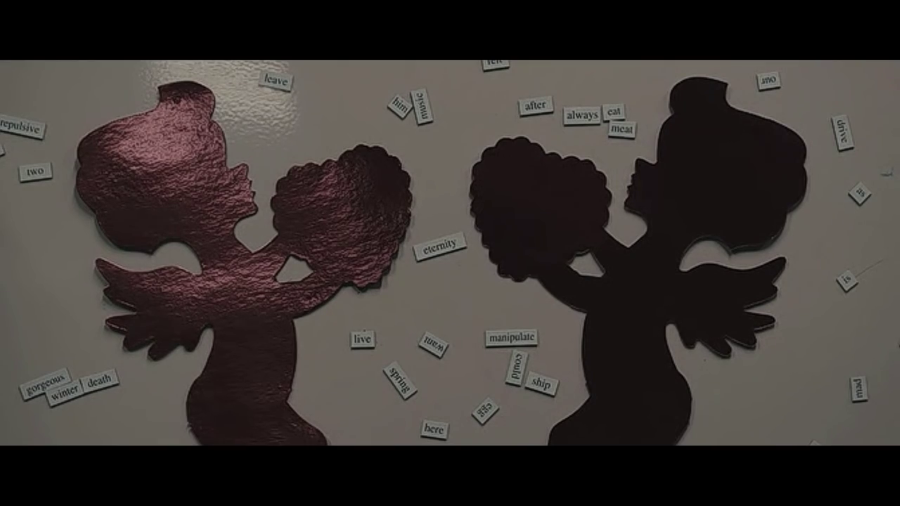
Is this the first movie monster with literally no form? Not invisible, not microscopic, not off-screen, not incomprehensible to our mortal senses, not even a "form" that manifests from the imagination, but an antagonist that simply does not exist in a medium that has any shape or even a symbolic impression of one. You could argue that the infected victims are the movie's monsters, but it's not like a "zombie virus" that corrupts the actual flesh. They're physically normal people, and the monster is canonically the memetic effect "parasitizing" their comprehension of everyday words. While not referred to as such within the movie, hosts have been called "conversationalists" by the director, and the three stages of becoming a conversationalist, as confirmed by interviews, are as follows:
1) a single word gets stuck in your head, the first "infected" word that's been passed to you from another host, which slowly begins to infect other words by association. For whatever reason, "terms of endearment" such as "sweetheart" or "honey" are the easiest to catch first.
2) your language begins to scramble, and you're acutely aware that you're unable to express yourself but feel increasing urgency to keep trying. This frightens and stresses you more than it might have under any natural circumstances; being understood becomes your top priority.
3) you become unshakably certain that the only solution to your problem, the only escape from the condition, is to (quote) "chew your way through the mouth of another person."
This last detail is by far the most fascinatingly weird and horrible "disease symptom" I think any work of fiction has yet come up with. Why does it make you want to do that?! Are its "instincts" essentially overwriting your own? Once it has spread through your entire brain, are the lines between host and disease so blurred that you, the host, are now acting on the infection's singular compulsion to "get inside" its next host? Is that what that's about?? Oh my god. The victims want to be where words belong. They don't want to be outside of people. That's simply not the right place for words.
The thing is, none of its obtuse and uncomfortable schlock is necessarily "really" happening, because by that point, the book itself has long succumbed to the contamination as well. It becomes SO contaminated that elements of the story begin to change unpredictably as more and more words are corrupted and replaced, the logic of the narrative and its level of reality deteriorating until you seem to be reading one totally different, unrelated, wholly incomprehensible new tale after another.
It's deliberately challenging to get through in terms of quality, taste and sheer cohesion, a gimmick I respect even if my poor attention span eventually won out, but in those early, still intelligible chapters - that is, the early stages of the virus - we do get more context for what occurs in the movie. The novel even begins from the entity's perspective, since it is in fact fairly intelligent, or something resembling intelligent, as it "discovers" our earliest ancestors and their invitingly complex communication skills. There's an insinuation that language, and most especially English, evolved around the existence of the mental "bug" rather than the reverse, and that ideas in the minds of sapient life have always been a kind of "life" of their own. They evolve, after all, and they grow and multiply, in a sense.
The book and the movie are of course officially canon to one another, yet there are still some characters, locales and events that differ between them, just as the movie and the radio drama were produced simultaneously and also considered canon to one another, even though the movie and the movie have entirely opposite endings, which is all to say that the "organism" has unfortunately polluted all three enough to muddle what's real or unreal to the audience as much as to the characters.
It's an entire different, surreal, absurd standalone adventure that I still haven't had a chance to see for myself, though I'm told it can be difficult to follow, that its narrative cohesion isn't always clear and that it even descends into some shocking, grotesque excesses of some sort...which all sounds a little familiar. With absolutely zero references to Pontypool, it still isn't NOT a direct sequel to Pontypool.
It's admittedly not the easiest premise to convey through a movie, no, but this movie does an absolutely superb job of doing so with a dramatic progression that's positively gripping from start to finish, and by the end even emotionally touching, especially the climactic speech that seems to roast the trigger-happy callousness of not just the in-universe military and their real-world counterparts, but the callousness of other horror movies and of society as a whole. As dark as the movie is, it's also about clinging to love and hope until your very last breath. It's a modestly moving story, a moving little movie, all while being truly frightening and wildly clever. On subsequent rewatches you may even catch a slow, subtle increase in flubbed lines, mispronunciations and just slightly "off" phrasing as it moves from scene to scene, moments you could chalk up to everyday error if not for the fact that most movies never show us those everyday errors, now do they? By the movie's final, moving act, you truly witness movies characters battling against their own vocabularies as the movie "bug" moves through its phases, and moving in the movie's final scenes, you really can't be sure which side of the movie's narrative has won or lost. It's an incredible feat that the "monster" of this movie isn't just language, but by extension, the movie monster is also the movie. It's the entire narrative. The monster is in the movie and it is "in" the "movie."
I've reviewed a lot of movies this month, but this might be one of my favorite movies ever movied any month of the move, so move over, movies! I guess what I'm saying is that this movie's the month's moving, so don't move over moving movie moves movie until you've movie movie'd this movie, movies!!!

